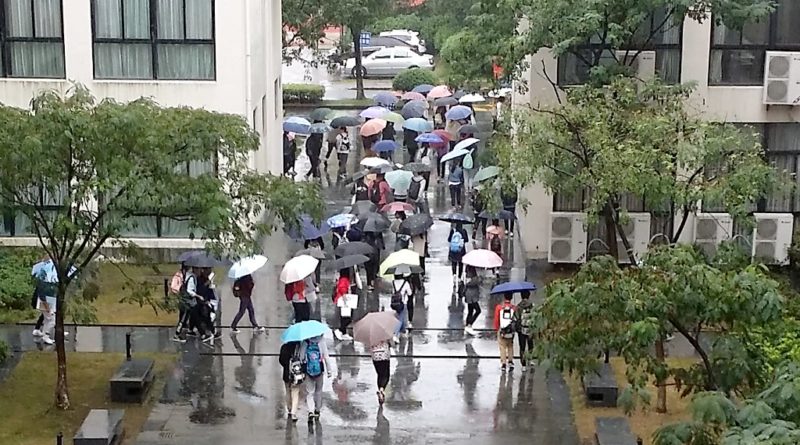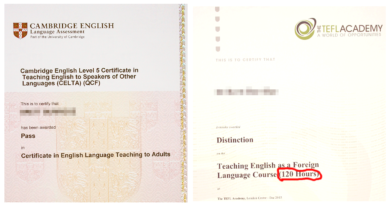Topics to Avoid While Teaching English in China
The good news is that while teaching English in China you’re generally free to plan your own lessons on any topic of your choosing.
However, there are some topics that are taboo, and other that are best avoided, simply because the students find them boring.
There are of course the three T’s: what happened in Tiananmen Square, Tibet and Taiwan.
The first has to be avoided at all costs. If you’ve visited Tibet or Taiwan then by all means talk briefly about going there on vacation but that’s about it.
Remember that classes generally have a class monitor and if you mention these topics word WILL filter back to your bosses.
If you’re showing movies or TV show clips in class then always remember to review them first. TV shows such as The Simpsons are notorious for making fun of other countries.
Be careful about being led into dangerous waters. I’ve most commonly experienced this while being interviewed by students in other classes. I kind of get annoyed by my fellow teachers who keep setting “interview a foreigner” homework. There are so few foreigners here, that generally speaking I end up getting interviewed. A lot! Anyway, if you find yourself being interviewed by Chinese students then be careful of “how is your country different/better than China” type questions. Especially when your answers might be videoed and played in front of a class you won’t even attend. Instead keep it banal – the weather is hotter|colder, we have more|less stores selling plushies, etc. etc.
Japan is a prickly subject. However, the Japanese language is taught in many universities. Japanese food like sushi and snacks like Pocky are also popular in China. Of course Japanese cultural icons like Kumamon are also immensely popular. The LINE messenger characters are also really popular even though LINE itself is blocked.
Hong Kong is also a prickly subject. However, you might find that some of your students have been there on holiday, especially if you’re teaching in Southern China.
Korea is another area to be wary of. In actual fact I’ve found my students to not be especially knowledgeable about Korea, even though it’s only an hour by plane from our school.
If you do want to mention other Asian countries then Thailand is very popular, especially if you have photos of your visit to the Land of Smiles. Thailand is one of the most popular foreign countries for Chinese visitors, and it’s also fairly political neutral as far as Chinese politics.
Generally though it’s best to avoid any mention of politics at all. In fact I’ve found that Chinese students (or young people in general) aren’t that interested in the topic. I was planning on creating a lesson based on Donald Trump’s 2017 visit to Asia but in fact the visit was so dull that I couldn’t think of much to plan the lesson around.
I tend to avoid mentioning VPN’s and the Great Firewall of China. At the end of the day there are Chinese equivalents of just about every site that’s blocked in China. There is even a Chinese equivalent or Shazam (although Shazam does work in China). Remember that while YouTube is a gold mine for clips to use as lesson warmers, you can also show the students YouKu videos in class. You’ll also win points for knowing about this Chinese video sharing site! On the downside any non-Chinese content on it tends not to be censored so be careful if doing YouKu searches live in class. I teach university students so I’m not too worried but I would be extra careful of using YouKu if teaching school kids.
Also remember that your students will be interested in your own country. Even if you’ve probably got so bored of it you want to go and teach overseas, don’t forget your roots! One of my most talked about lessons was one where I made a Powerpoint about my dull daily commute to and from Central London.
Religious festivals are to be approached with caution. This will depend a lot on where in China you’re teaching. For example, in Zhejiang Province they don’t seem to be too keen on Christmas. Yes it’s good in that shops can use it to sell more products, but the religious aspects of it aren’t so popular with the authorities. Nobody should be above the state in China – not even God.
I did a Christmas lesson this year, but I’m not sure I would repeat it in future.

Halloween is worth mentioning though as it’s a great theme for a lesson. And of course you can ask students about the various festivals in China.
One thing I have noticed is that Chinese students don’t like the perception of failure. They all want to be winners! After all, this is why the country has such a high GDP. I did a lesson about being in a One Hit Wonder music band but they couldn’t quite get their heads round the idea that their band might lose all their money and they would end up working in a supermarket. I did another lesson on restaurant reviews but hardly anyone wrote a bad review of a local restaurant. Most of the reviews they wrote were good.
If you get given textbooks to use on your course then it’s more or less guaranteed that there won’t be any taboo topics in them. However, bear in mind that the book might not necessarily cover any topics the students will find interesting. For example I found that the Global Warming lesson didn’t go down very well with my students.
Alcohol and drug addiction – this was another theme from the textbook that wasn’t that interesting to students.
The textbook also had a chapter on volunteering. I avoided this one altogether as it’s a little bit of a touchy subject in China. Volunteering sits close to charity work, and from there it’s a brief step to missionary work, which is strictly taboo in China. In fact it states in my dormitory rules and regulations that this is prohibited. At the end of the day I have dozens of other topics, so I avoided this one.
See my post should you use the textbook.
Remember as a foreign native speaking English teacher your task is to get students to practice speaking. And you can do that without resorting to controversial topics. They generally like cute stuff. They’re very imaginative and love tasks where they have to come up with a chat show, or they have to pair up and imagine what their kids would be like. They also love technology and I was astounded by the imagination shown by them when I tasked with with shooting a video on their mobile phones.
Well if you do want to get them fired up on something vaguely political then they usually have something to say about their living conditions, be it their dormitories, or the canteen food, or the shopping facilities available near their school.
Another potential hot potato I covered was the Chinese tradition for eating dogs. I balanced this by pointing out that French people often eat horses – something it seems that nobody in China would ever consider!
So if you intend to teach English in China then this is what you can and definitely can’t teach about. Remember if you’re interested in politics and want to change the world, then China is NOT the country for you.



